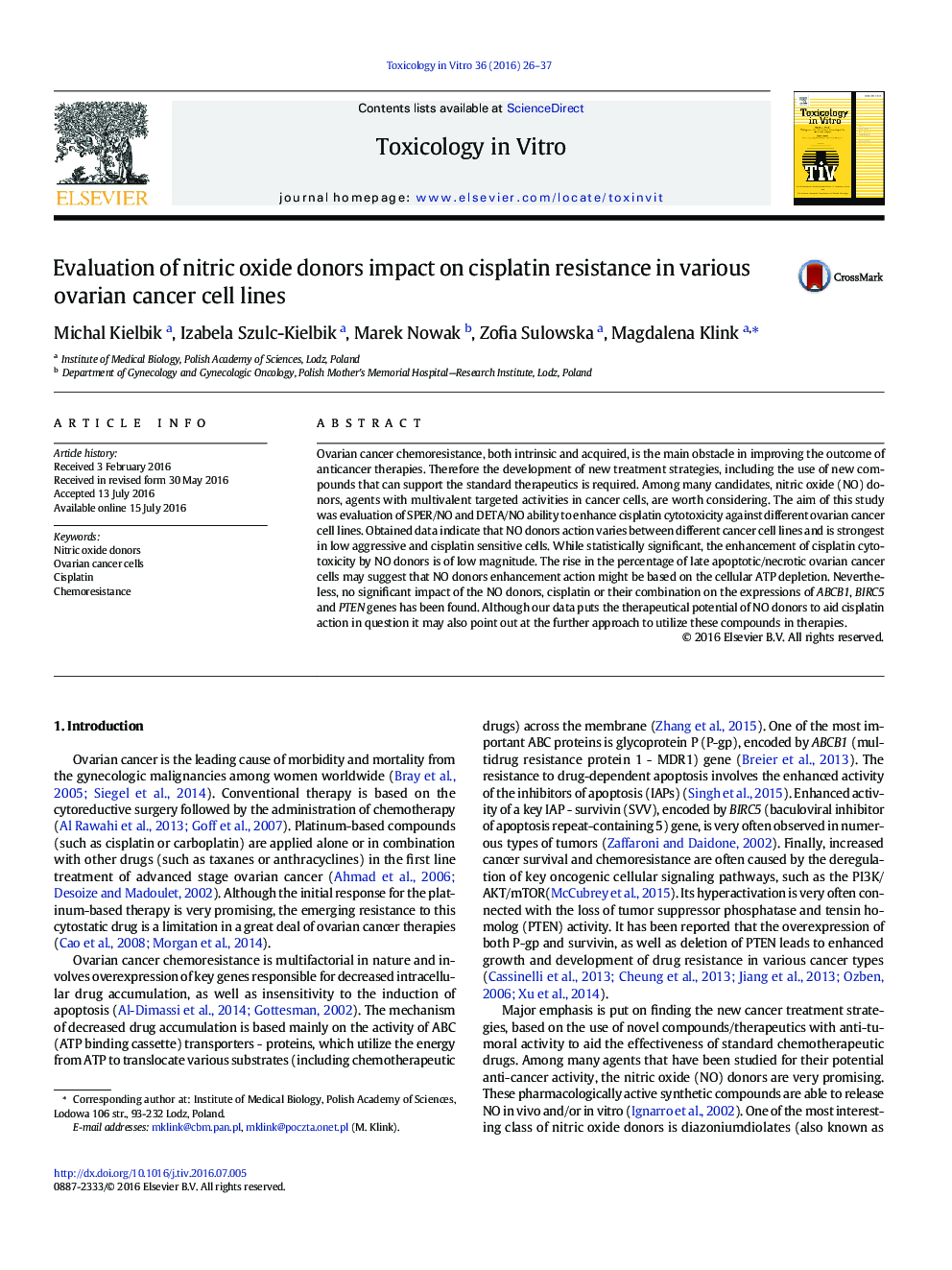| Article ID | Journal | Published Year | Pages | File Type |
|---|---|---|---|---|
| 5861161 | Toxicology in Vitro | 2016 | 12 Pages |
Abstract
Ovarian cancer chemoresistance, both intrinsic and acquired, is the main obstacle in improving the outcome of anticancer therapies. Therefore the development of new treatment strategies, including the use of new compounds that can support the standard therapeutics is required. Among many candidates, nitric oxide (NO) donors, agents with multivalent targeted activities in cancer cells, are worth considering. The aim of this study was evaluation of SPER/NO and DETA/NO ability to enhance cisplatin cytotoxicity against different ovarian cancer cell lines. Obtained data indicate that NO donors action varies between different cancer cell lines and is strongest in low aggressive and cisplatin sensitive cells. While statistically significant, the enhancement of cisplatin cytotoxicity by NO donors is of low magnitude. The rise in the percentage of late apoptotic/necrotic ovarian cancer cells may suggest that NO donors enhancement action might be based on the cellular ATP depletion. Nevertheless, no significant impact of the NO donors, cisplatin or their combination on the expressions of ABCB1, BIRC5 and PTEN genes has been found. Although our data puts the therapeutical potential of NO donors to aid cisplatin action in question it may also point out at the further approach to utilize these compounds in therapies.
Related Topics
Life Sciences
Environmental Science
Health, Toxicology and Mutagenesis
Authors
Michal Kielbik, Izabela Szulc-Kielbik, Marek Nowak, Zofia Sulowska, Magdalena Klink,
